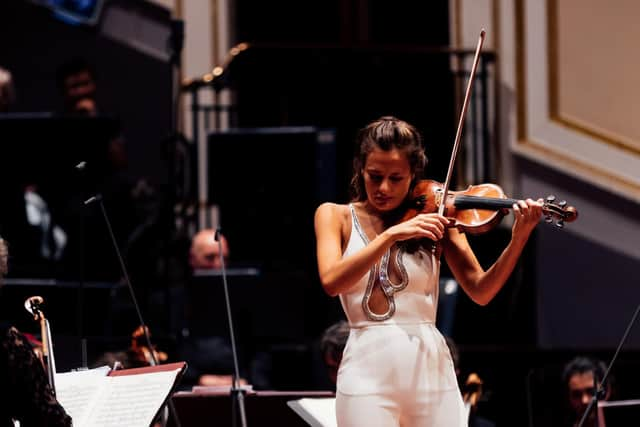Edinburgh International Festival music reviews: Scottish Chamber Orchestra & Nicola Benedetti | Pavel Haas Quartet
Scottish Chamber Orchestra & Nicola Benedetti *****
Usher Hall, Edinburgh
In what must be a first in its 75 years of existence, an incoming Director of the Edinburgh International Festival was star billing on stage on Monday evening at the Usher Hall. What Nicola Benedetti has in store for her debut EIF programme remains to be seen but for now, she once again transfixed a near capacity audience with a performance of outstanding depth and beauty. Backed by the Scottish Chamber Orchestra and their dynamo Principal Conductor Maxim Emelyanychev in intense, concentrated energy, Bruch’s ever popular G minor Violin Concerto was heard in both exquisite tenderness and reflective grittiness, its pleading lines taking on an impending sense of urgency from both soloist and orchestra. Glorious and lush, the SCO are superbly expressive with Emelyanychev coaxing and shaping their sound and dynamic range. Tchaikovsky’s score for the ballet The Sleeping Beauty is overflowing with melody, the SCO picking up the narrative of the Prologue and first two acts with spirited edge and excitement in Emelyanychev’s expansive gestures. Strings were silky smooth in the famous waltz scene as princes vie for the hand of the young princess, the music finally culminating in triumph as good wins over evil. Carol Main


Pavel Haas Quartet ****
Queen’s Hall, Edinburgh
As the Pavel Haas Quartet players came bounding onto the Queen’s Hall stage – cellist Peter Jarůšek with 80s-style rolled-up suit sleeves, ready for action – they clearly meant business. And they’ve meant business, too, at several blazing EIF appearances in the past – which no doubt drew the concert’s huge, enthusiastic, expectant crowd. But if anything, this was probably a more measured, more balanced performance than the Pavel Haas players have delivered previously – certainly in Schubert’s notorious, monumental G major Quartet, D887. Here, the composer’s restless fluctuating between major and minor felt in the Pavel Haas’s hands not like some brutal battle between joy and despair (as is so often the case), but instead like an elemental collision between primal forces, forever striving for dominance, forever finely balanced. Cellist Jarůšek stood out in a beautifully judged slow movement solo, played eloquently with simple directness rather than syrupy sentimentality.
Their opening Haydn Op. 76 No. 1 took its first movement to get properly warmed up, with some unexpected lapses in intonation. Their Martinů Seventh Quartet, though, was a joy, and a real discovery – little known to many in the audience, surely, but bubbling with bracing neo-classical wit and delivered with sweeping, smiling enthusiasm. Yes, they meant business, and they delivered it, too. David Kettle